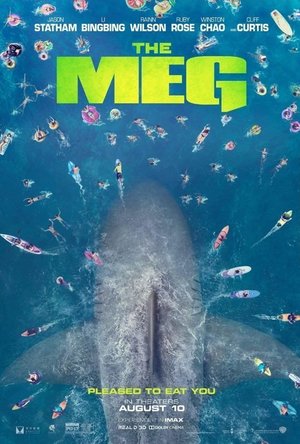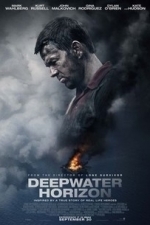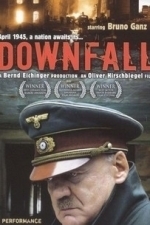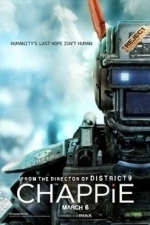
OPlayer - video player, classic media streaming
Entertainment and Music
App
Play all your videos directly without having to convert them! OPlayer supports almost every format...

USB Flash Drive Pro Version
Utilities and Productivity
App
With USB Flash Drive, you can store, view and manage files on your iPhone / iPad. USB Flash Drive...

OPlayerHD Lite - media player, video file manager
Utilities and Music
App
Play all your videos directly without having to convert them! OPlayer supports almost every format...

Reverso translation dictionary
Reference and Education
App
Translate and learn millions of words and expressions and express yourself as if you were a native...
Bob Mann (459 KP) rated The Meg (2018) in Movies
Sep 28, 2021
Jason Statham – the unthinking man’s Dwayne Johnson – plays our hero Jonas Taylor. (Jonas? Surely some sly joke?). Jonas is drinking his life away in Thailand after being traumatised by an underwater rescue mission in which he was 90% successful. (Yeah, I know. Bloody perfectionists. Hate ’em). But he is needed again, since his cute ex-wife Lori (Jessica McNamee) is stuck at the bottom of the sea being terrorised by a terrifying creature: no, not Spongebob Square Pants… the titular prehistoric shark.
Lori is working at an undersea research station – Mana One – off the coast of China, funded by the annoyingly brash billionaire Morris (Rainn Wilson, from “The Office”), who you just HOPE HOPE HOPE will get munched at some point!
Running the station (in the most shameless Hollywood/Chinese market crossover since “The Great Wall“) is Zhang (Winston Chao) assisted by his cute daughter Suyin (played by the gloriously named and very talented Bingbing Li) and his even cuter granddaughter Meiying (Sophia Cai). The race is on to use their brains and Taylor’s brawn to stop the monster from reaching the seaside resort of Sanya Bay for lunch.
The action is, of course, absurd with so many near misses for Jonas from gnashing teeth that he could be The Meg’s registered dentist. There is a really nice dynamic though built up between Jonas, his potential cross-cultural love interest Suyin and young Meiying. Suyin is a classic TimesUp heroine for 2018, with an assertive f***-you attitude and not remotely giving an inch to Statham’s hero.
But it’s young Sophia as Meying who really steals lines and steals hearts with a truly charming performance, and would get my ‘man of the match’ were it not for…
…research assistant Jaxx (Australian model, Ruby Rose). She has an absolutely extraordinary look in this film. Chiselled and tattooed, she literally looks like she has stepped out of a Final Fantasy video game… and acts well too: the complete package.
As referenced above, the Hollywood/Chinese crossover is quite striking in this film, with the Chinese beach location looking like Amity Island on crack! (Cue the overweight Chinese kid as the Jaws “Alex” replacement… who knew China had a child obesity issue too… and that they also have ‘Zoom’ ice lollies!) Unusually for a mainstream Western film, a significant number of lines in the film are in Chinese with English subtitles.
In the league table of shark movies, it is far nearer to “Deep Blue Sea” than it is to “Jaws”, the reigning league champion, and all are far in excess of the ridiculous “Sharknado”. But compared to “Deep Blue Sea”, and even compared to “Jaws” – now, astonishingly, 43 years old! – it’s a curiously bloodless concoction, presumably to guarantee it’s 12A certificate. I have seen far bloodier and more violent 12A’s, and if anything I think director Jon Turteltaub (“National Treasure”) rather overdid the sanitisation.
It’s not going to win many gongs at the Oscars, but it is a slice of movie fun nonetheless.
Bob Mann (459 KP) rated Deepwater Horizon (2016) in Movies
Sep 29, 2021
The exploratory project is way-behind and BP are not happy. Big-wigs from the company add support to Donald Vidrine, the BP site leader, in applying mounting pressure on Harrell to press on regardless without all the necessary and time-consuming tests by Schlumberger being completed. Rogue numbers in further tests are waved away as ‘glitches’. A familiar story of corporate greed and pressure overriding the expert’s better judgment.
When disaster strikes it strikes quickly, with some spectacular and exciting special effects that leave the audience especially hot under the collar. Female support is provided by the comely Andrea Fleytas (Gina Rodriguez), given the almost impossible job of keeping the floating bomb on station as chaos reigns about her. As an audience we are back on familiar ground here from classic Irwin Allen disaster movies such as “The Towering Inferno” and “The Poseidon Adventure”. Who will make it, and who won’t?
A more telling question here is “Do we care?” and unfortunately for the film, the answer is “Not really”. This feels a callous thing to say when this was a real and recent event and eleven people and – as touchingly illustrated at the end of the film in tribute – many of them family men with young kids, never went home again. But film-wise, we only really get bought into the fate of Williams, whose back-story, with cute wife (Kate Hudson) and cute daughter (Stella Allen) we get to meet and sympathize with.
We get a minimalist view of Fleytas’s backstory, but only enough to provide a recurring “Mustang” reference. And that’s it. All the other characters are just two-dimensional “rig crew”: cannon-fodder for the special effects team. The screenplay by Matthew Sand and Matthew Carnahan really doesn’t deliver enough heft to get us bought in.
While the special effects are good, the sound design isn’t, with much of the dialogue being incomprehensible.
All the acting is fine, with the ever-watchable John Malkovich nicely portraying the corporate head you love to hate. Wahlberg as well delivers enough range to make you forget in this “action mode” that he was also in “Ted”. And Rodriguez as a junior lead holds her own against the big guns in what is a creditable performance in a big film role for her.
While “Lone Survivor”/”Battleship” director Peter Berg neatly provides an insight into life on and around rigs, and (via subtitles) descriptions of the drilling process which I found interesting, this comes down to the sum of a tense build up, an hour of frenetic disaster, and then a whimper of an ending. Where were some of the dramatic scenes of conflict in the congressional hearing that the film’s opening implies might come? Where are the scenes of ecological disaster and local financial ruin to add emotional angles to the story? None of this is really exploited and the whole concoction comes across a bit “meh” as a result. Not a bad film by any means. But not one I will remember in a month or two’s time.
RəX Regent (349 KP) rated Downfall (Der Untergang) (2004) in Movies
Feb 19, 2019
Told in a straight forward manner, we are given a portrait of not only Adolf Hitler himself, played perfectly by Bruno Ganz, who manages to humanize him without ever apologising for his heinous acts, but also those close to him. Shown through the young eyes of his final secretary, Traudl Junge (Alexandra Maria Lara), we are given a picture of what The Third Reich was to those who believed in it as well as what it had become for those who would suffer at it bloody hands.
Directed by Hirschbiegel to put us, the audience in the anterooms with these monsters, we are placed into a complex environment, edgy, atmospheric and most of all, real, as we witness noble acts of patriotism, conscience and pure, despicable horror, none less so that Magda Geobells, with the full consent of her husband, Joseph, first drugging, then murdering their six children as they slept, rather than “let them live in a world without national socialism.”
The only redeeming factors were their eventual suicides and in terms of the film, their first rate performances throughout this harrowing scene. Corinna Harfouch, who portrays Magda manages to portray this evil woman yet convey the emotion which was subdued deep beneath the surface. No small feat to allow such a fleeting glimpse of humanity during such and inhuman act.
But the same must be said Bruno Ganz, who manages to portray Hitler with such humanity; whilst showing us the true nature of his monstrosities, highlighting that the REAL monsters live among us and can seduce us at any time, any where, especially when we are vulnerable.
During one of the film’s early scenes, Hitler and Albert Speer (Heino Ferch), his Armaments Minister, discussing his vision for The Third Reich as he looks over a model of the new Germany which would be built after he won the war, a Germany without department stores, instead focusing on art, literature and culture.
Surely a noble goal, but as we all know, this cultural hub would have been built at an unacceptable cost, mainly with the blood of those who Hitler and his cohorts deemed to be inferior.
This is one of many clever methods used to convey a fair portrait of Hitler and The Third Reich. To demonstrate how bad they were, you first have to show impartiality, pointing out the good in what they do, play devil’s advocate as it were. Because whether we like it or not, evil motives are often built upon decent goals.
But as this film demonstrates, as Hitler shows his destine for anyone, even his own people, who will not give their lives for HIS vision of Germany, his Third Reich was being eaten away by a cancer of his own making, a Germany rotting from the very top.
Downfall is without a doubt one of the best World War 2 films which I have ever seen, delivering a compelling and immersive look behind the scenes of one of the most important defeats in modern history.
But being British and having to follow this with subtitles, which was great as watching this in its native German only adds to the experience, it can be a bit difficult to keep up with every plot machination, as we spend two and half hours reading about troop deployments, tactics and the philosophy of the Third Reich as we are presented with such atmospheric work, but if you can keep up with but the text and visuals, this is one hell of an education for those who do not know and an immersive masterpiece for those who follow WW2 history.
Chris Sawin (602 KP) rated Paprika (2006) in Movies
Jun 19, 2019
Let me just start off by saying I loved this film. It is weird, it is unusual, and it's creatively original. I think those are some of the best reasons to like Paprika other than the fact that the animation is incredibly fluid and crisp and the story is quite good, but we'll come back to those points shortly. With a film like Paprika that is so complex and so good, there's a lot of key points to mention.
There seems to be so much going on in the film even though it pretty much centers around one dream and it's a dream for the ages. One of the things I love about Paprika is that whenever this dream is implanted into somebody while they're awake, they just start spitting this random gibberish that doesn't make sense until you actually see the dream and see this parade. The way this parade bleeds into not only Detective Kogawa's dream, but into the real world is also a sight within itself.
Over the years I've found that not only anime fans but fans of foreign cinema prefer to watch the film in its natural language with subtitles rather than the English dubbed version. I'm not talking about someone who just watches anime occasionally, but die hard fans. The English dubbing used to be pretty bad on a lot of anime titles, but it's either progressed quite a bit since I last watched a dubbed title or this film is an exception. I had no problems watching the English dub of Paprika. The voices all fit the characters, it was synced up well, nothing really sounded out of place. I'd actually recommend the English dub over the subtitled version. The audio, in general, was very good. The soundtrack also fit Paprika like a glove. The music during the parade dream is a perfect example of this.
The animation of Paprika is where the film really shines. Each surreal dream is illustrated beautifully and each cel of animation flows in an almost realistic fashion. It's some of the best animation I've seen in an animated film that isn't entirely CGI. The story also reeled me in since what started off as something somewhat simple wound up being more complex than what I once thought. Most of Tokita's dialogue where he's describing why he created the DC Mini and it's purposes are a huge mouthful of scientific jargon that's hard to comprehend to its full extent on the first viewing of Paprika. I got more than what I expected story-wise and I was extremely happy with that.
Paprika is an extremely well animated, intelligent, trip into one's imagination that I'd recommend to anyone. The best way I can describe the film is by saying it's kind of like Akira with a story that actually makes sense. Track this film down, whether you're a fan of animated films or not. I think you'll be pleasantly surprised.
Gareth von Kallenbach (980 KP) rated Chappie (2015) in Movies
Jun 19, 2019
His boss Michelle (Sigourney Weaver), is not interested in anything other than the bottom line and discourages any creation or research that do not have military and financial ramification to them.
Deon must also content with an ex-soldier and rival designer named Vincent (Hugh Jackman), who is jealous of the success of the Scouts and wants to instead see his heavy weapons unit be given the chance to shine.
When he has a breakthrough, Deon opts to defy his boss and installs a new and revolutionary A.I. program into a Scout that was scheduled to be demolished after taking extensive damage in the field.
Things do not go as planned when Deon and his creation are captured by a gang who are desperate to raise money in order to pay back a debt to a rival gangster.
The new unit is like a child and Deon explains that he has to be treated like a child and given the chance to learn. The fact that his damage prevents him from being able to be recharged means the Scout now named “Chappie” only a few days of life adds urgency to the situation.
The gang starts to teach Chappie (Sharito Copley), when he needs to know to help them pull of their crimes but also become attached to him as he innocent ways and outlook start to grow on the gruff criminals.
With the clock ticking, events take a turn when Vincent takes matters into his own hands and before long several parties are pitted against one another with their very survival on the line.
Writer./Director Neil Blomkamp has crafted a “Thinking Man’s” science fiction film that evokes many solid debates about the definition of life, death, a soul, and other less tangible themes. The film has some action at the beginning and end and the CGI effects are very solid.
The biggest issue I had with the film was that the great premise lost momentum in the final act and in many ways takes some huge leaps of faith. We are supposed to believe that this is a top defense company yet people are able to come and go, especially at crunch time during the film. I had no idea you can just drive through a fence into a loading dock without every encountering any security or resistance. The area is like a revolving door as characters come and go without raising an eyebrow.
The cast is solid but some may have an issue with the accents in the film which Blomkamp recognizes by adding in subtitles at various moments in the film.
In the end “Chappie” is a good premise that never fully meets the potential it aspires to but still has enough good moments to underscore that Blomkamp is one of the most gifted talents in Science Fiction as he is able to infuse what would otherwise be a soulless character with enough heart and compassion that the audience will have empathy for him. With that in mind, Blomkamp should do a great job with the upcoming new Alien film as he has crafted a solid and enjoyable film that entertains while making you think about the deeper issues of existence without doing it in a heavy-handed manner.
http://sknr.net/2015/03/06/chappie/
Ivana A. | Diary of Difference (1171 KP) rated The Psychology of Time Travel in Books
Dec 30, 2018
I love the idea of time travelling and I love the idea of time travelling books. That is the main reason why I chose to read this ARC copy. The synopsis sounded intriguing, and the cover was gorgeous. I don’t have much experience reading time travelling books. I still believe the synopsis is intriguing and the cover is gorgeous, but I am not satisfied with the feelings this book left me, after I read the last chapter.
The story begins when four ladies in the early 1960s work together and build the first time travel machine. And they are surrounded by curious people and media, and one of them has a breakdown and is expelled from the project, as she is a risk to herself and others. But they don’t just exclude her from their project, but from their whole lives, and time travelling altogether.
”Sometimes we want proximity and a crowd gives us the excuse.”
And many years after, when time travelling is something everyone knows about, secrets start to be revealed, little by little, and a murder happens without explanation. A few young women, completely unrelated and with different missions will try to get their way into the whole time-travel business, and try to figure the answers to their questions.
In The Psychology of Time Travel, one is certain – you will flow through time and places like never before. One chapter it’s 1967, and the next one, it’s 2015. You will meet a lady and her young self, her old self, and her current self, all at one place, talking to each other, or simultaneously performing a dancing act. You will get to see a world very well created, a complex structure of how time travel might work, and details that you wouldn’t thought of checking twice.
I couldn’t connect to any character. Maybe there were too many. The chapters were very short, and they travelled through years so quickly, that I couldn’t catch up. Catching up with the plot of a book, and figuring out what is going on while being presented things so fast is very frustrating. It’s like watching a movie in a foreign language, the subtitles being your only way of gathering information, and they disappear instantly, without you having a chance to understand.
The romance in this book was another thing that bothered me. While we get a lot of romantic relationships going around, one particularly threw me off my feet. A love story where one girl is in love with another. This is the completely realistic part. But the unrealistic one was that one girl lives in the present, and the other is a time-traveller in the past – so even though they are currently (technically) the same age, in reality one is in the mid 20s, and the other in the mid 80s. I couldn’t process this, or agree with it.
”You couldn’t get involved with someone who spent most of their life in a different time period from you.”
I am sure I would have loved the characters, have I had more chances to get to know them. They showed signs of bravery, and goals and hopes for a better tomorrow, with a spark unlike any others. But it all lasted so short, before we switched to another character, and so on.
Even though this one didn’t work for me – I still encourage you to give it a go, if you are a fan of time travel. The idea of time travelling is very well done, and deserves to be discussed.
A huge thank you to NetGalley and Crooked Lane Books, for providing me an ARC copy of The Psychology of Time Travel in exchange for an honest review.





